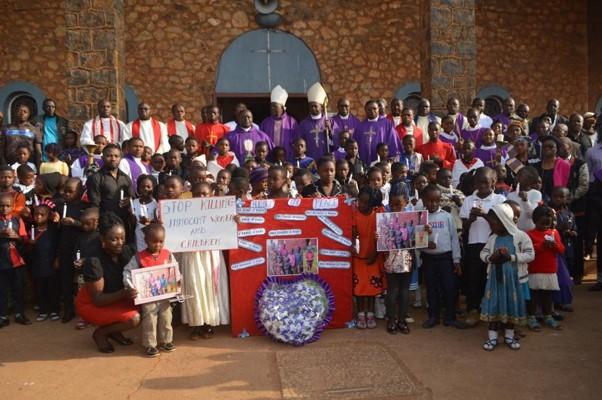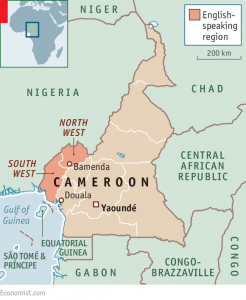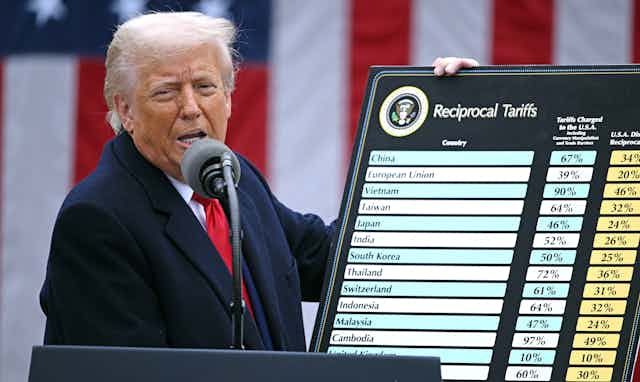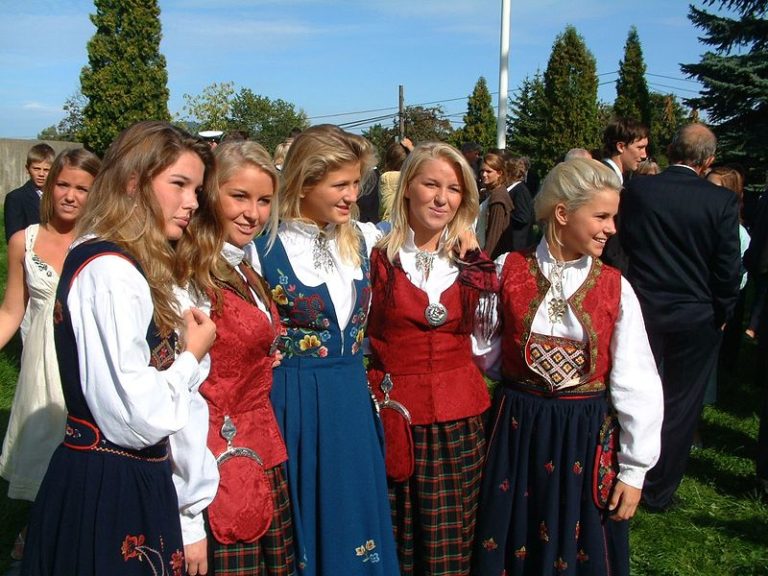At Least 21 Killed in Attack on Ngarbuh Village; Set Independent Inquiry

© 2020 Private
(Nairobi) – Government forces and armed ethnic Fulani killed at least 21 civilians in Cameroon’s Ngarbuh village, including 13 children and 1 pregnant woman, on February 14, 2020. They also burned five homes, pillaged scores of other properties, and beat residents. Some of the bodies of the victims were found burned inside their homes. The government denies that its troops have deliberately committed crimes.
“The gruesome killings of civilians, including children, are egregious crimes that should be effectively and independently investigated, and those responsible should be brought to justice,” said Ilaria Allegrozzi, senior Africa researcher at Human Rights Watch. “Denying that these crimes have occurred adds another layer of trauma to survivors and will only embolden government troops to commit more atrocities.”
Human Rights Watch interviewed 25 people, including 3 witnesses to the killings and 7 relatives of victims, about these events that took place in Ngarbuh, Donga Mantung Division, in the North-West region. This area has been severely affected by violence between government forces and armed groups seeking a separate state for the North-West and South-West anglophone regions. Ethnic Fulani also live in and around Ngarbuh. They are known as “Mbororo” and are mainly pastoralists.

Human Rights Watch also obtained lists of the victims’ names from five sources and spoke to people, including relatives of the victims and residents who carried out the burials, who independently confirmed the victims’ identities.
Witnesses said that between 10 and 15 soldiers, including members of the Rapid Intervention Battalion, the elite unit of the Cameroonian army, and at least 30 armed Fulani first entered Ngarbuh 1, a neighborhood in Ngarbuh, on foot at about 11 p.m. on February 13, looting scores of homes. Some of these forces then continued to the Ngarbuh 2 neighborhood, looting homes and beating civilians. At around 5 a.m. on February 14, a group of soldiers and armed Fulani attacked the Ngarbuh 3 neighborhood, killing 21 civilians in four homes, then burning the houses.
Human Rights Watch also reviewed satellite imagery taken before and after the attack in Ngarbuh 3. The post-attack image, taken at 10:24 a.m. Cameroon time on February 14, shows several homes in Ngarbuh with damage that is consistent with burning.
A 32-year-old man who witnessed the killing of his whole family, including seven children, said: “I heard gunshots and left immediately to hide beside my house. From there, I saw the military shooting my family members one by one as they attempted to escape. They shot our mother first. Then, they shot the children, whose bodies all fell on her. Then, they set my home on fire.”
Human Rights Watch made several attempts to contact a senior member of the government but did not receive a response. Cameroon’s defense minister issued two statements on February 17. He first announced that the government had opened an investigation and that its findings would be made public. In a second statement later that day, he stated that the investigation findings “could be published at an appropriate time.” Both statements asserted that armed “terrorists” attacked government security forces and that the fighting led to an explosion of fuel containers, which destroyed several homes and killed one woman and four children. This assertion was restated on February 18 in a news release from the communication minister.
However, witnesses and residents with whom Human Rights Watch spoke said that there was no confrontation between armed separatists and security forces, that they heard no explosions, and that the killings were deliberate.
Residents said the attack was to punish civilians suspected of harboring separatist fighters. Twelve witnesses said that, after the killings, the military addressed residents in Ngarbuh 2, warning that their village would be destroyed if they continued to shelter separatists.
During and after this speech, soldiers threatened people, admitting that they had killed children in Ngarbuh 3, and saying that they would do the same in Ngarbuh 2. “The military broke into my house,” a 45-year old woman said. “They said my children were Amba fighters [separatists] and they searched for guns. They found none, but they beat me and said: ‘We have already killed children in Ngarbuh 3, so we can kill you too.’”
On February 16, a joint team of the United Nations Office for the Coordination of Humanitarian Affairs and the UN High Commissioner for Refugees attempted to carry out a humanitarian needs assessment in Ngarbuh, but Rapid Intervention Battalion soldiers blocked them in Ntumbaw, the village closest to Ngarbuh, where the UN teams had started interviewing those displaced by the attack. Witnesses said that the soldiers photographed those who were being interviewed and prevented the UN team from doing its work.
The UN secretary-general in a February 17 statement expressed concern over the killing of civilians in Ngarbuh and urged the government of Cameroon to open an investigation and hold those responsible accountable. The following day, the UN High Commissioner for Human Rights spokesperson said that Cameroonian authorities should ensure that its security forces “abide by applicable international law norms standards during the conduct of their operations.” On February 21, four UN officials, including the special representative for children and armed conflict, the special representative on sexual violence in conflict, the special representative on violence against children, and the special adviser on the prevention of genocide, issued a joint statement expressing their deep concern about reports of increasing violence in the Anglophone regions, including the attack on Ngarbuh, and called on the Cameroon government to ensure full respect for human rights.
The United States called for the government to authorize an independent investigation and ensure safety for witnesses. The killings in Ngarbuh were also condemned by other countries, including France, Canada, and the United Kingdom.
This is not the first time that the Cameroonian authorities have denied that its troops killed civilians. In 2018, an investigation conducted by Amnesty International, the BBC, and investigative journalists showed that Cameroonian soldiers depicted in a video carried out extrajudicial executions of two women and two children in the Far North region. The communication minister initially dismissed the video footage as “fake news.” However, seven soldiers were later arrested in connection with the killings. The trial is ongoing.
“The government of Cameroon should allow an independent investigation, with participation from the UN, into the Ngarbuh massacre, and make its findings public,” said Allegrozzi. “To be certain that assistance is not facilitating the commission of atrocities, Cameroon’s partners should halt military cooperation pending the results of such an inquiry.”
Background
Ethnic Fulani living in and around Ngarbuh are also known as “Mbororo” and are mainly pastoralists. Prior to the escalation of the crisis in the Anglophone regions, conflicts had occurred between the Fulani and local farmers over resources, including grazing land. This has been exacerbated since 2017 when violence erupted in the North-West and South-West regions. Armed separatists have targeted ethnic Fulani for their cattle in the North-West region and have accused them of joining vigilante groups sympathetic to the government. Armed Fulani groups have also attacked communities where armed separatists are known to operate.
Killings in Ngarbuh 3
Human Rights Watch research suggests that the killing of civilians in Ngarbuh 3 was deliberate. Witnesses and residents said that between 10 and 15 security force members acted jointly with a group of about 30 ethnic Fulani men who wore civilian clothes and were armed with machetes, clubs, and hunting guns.
Three witnesses said that the attack in Ngarbuh 3 took place at around 5 a.m. on February 14, 2020. Soldiers and armed Fulani attacked four houses, fatally shooting some residents. They also set the houses on fire, burning the bodies.
In one house, soldiers killed seven people, including five children, all from the same family. A 45-year-old relative who rushed to the scene after the killing said that four of the children were younger than 12.
In a second house, soldiers and armed Fulani killed nine people, including seven children and two women.
A resident who was among the people who buried the bodies told Human Rights Watch: “When I arrived at the scene, I could not believe my eyes. It was horrific. Some of the bodies were burned beyond recognition. Survivors were shocked and in panic. But many fled into the bush fearing for their lives.”
In a third house, military and armed Fulani killed two people, including a pregnant woman.
In a fourth house, military and armed Fulani killed three people, including a child. A woman living in the house was severely wounded but survived. A relative of the victims said he found the sole survivor with machete wounds all over her body.
Looting and Beatings
Twelve witnesses described how security forces and armed Fulani pillaged homes in Ngarbuh 1 and in Ngarbuh 2, forced people outside, and beat them.
A 32-year-old woman said that soldiers threatened to kill her if she did not give them money. “They kept beating me with the back of their guns and asking for money,” she said.
Another resident of Ngarbuh 2, a pastor, said:
The military were with a group of armed Fulani. They broke into and pillaged all the homes in Ngarbuh 2. They pulled people out, including me, and gathered us together at the village square, near the market. Some people were tied up with ropes. We were forced to the ground on our bellies. We could not raise our heads. When you looked up, they would beat you with machetes…. We were eventually released.
Cameroon – Events of 2019 HRW Country Report
Armed groups and government forces committed widespread human rights abuses across Cameroon throughout 2019. Freedom of expression, association, and assembly continued to be curtailed after President Paul Biya, 86, won his seventh term in October 2018, in elections marred by low voter turnout and allegations of fraud. The government denied a Human Rights Watch researcher entry to the country in April.
The Islamist armed group Boko Haram carried out over 100 attacks in the Far North region since January 2019 killing more than 100 civilians. The conflict between government forces and Boko Haram has killed thousands of Cameroonians and displaced over 270,000 since 2014, leading to the rise of self-defense vigilante groups.
In Anglophone regions, violence intensified as government forces conducted large-scale security operations and armed separatists carried out increasingly sophisticated attacks. Over 3,000 civilians and hundreds of security forces personnel have been killed in the Anglophone regions since 2016, when the crisis started. The unrest in these regions led to the displacement of over half-a-million people. In August, 10 leaders of a separatist group, the Ambazonia Interim Government, were sentenced to life by a military court, following a trial that raised concerns of due process and violations of fair trial rights.
Government forces and armed separatists have killed, violently assaulted, or kidnapped people with disabilities as they struggled to flee attacks, or because they were left behind.
Cameroonian authorities cracked down on the political opposition, violently broke up peaceful protests, and arrested hundreds of opposition party leaders, members, and supporters.

March 27, 2019 Video
Video: Cameroon Civilians Trapped Between Separatists, Government Forces
Government forces in Cameroon’s Anglophone regions have killed scores of civilians, used indiscriminate force, and torched hundreds of homes over the past six months.
The Anglophone Crisis
Cameroon’s Anglophone regions have been engulfed in crisis since late 2016, when English-speaking lawyers, students, and teachers began protesting what they saw as their under-representation in, and cultural marginalization by, the central government.
The response of government security forces has included killing civilians, torching villages, and using torture and incommunicado detention. Armed separatists have also killed, tortured, and kidnapped dozens of civilians, including teachers, students, and government officials.
On September 10, amid increasing violence and following sustained international pressure, President Biya called for a “national dialogue,” a series of nationwide discussions aimed at addressing the Anglophone crisis. The dialogue ended with the adoption of a special status for the two Anglophone regions and the release of hundreds of political prisoners, including Maurice Kamto, leader of the opposition Cameroon Renaissance Movement (MRC), and other people arrested in connection with the unrest in the North-West and South-West regions.
Killings, Destruction of Property, Torture by Government Forces
Responding to increasing attacks by armed separatist groups, security forces killed scores of people, burned hundreds of homes and other property in villages and cities across the North-West and South-West regions, and tortured suspected separatists in detention.
On February 6, security forces, including soldiers of the Rapid Intervention Battalion (BIR), stormed the market in Bole Bakundu village, South-West region, killing up to 10 men.
On April 4, Cameroonian soldiers, gendarmes, and BIR members carried out a deadly attack on the North-West region village of Meluf, killing five civilian males, including one with a mental disability, and wounding one woman. The forces also forcibly entered at least 80 homes in Meluf, looted some, and burned down seven.
On May 15, Air Force and BIR soldiers attacked Mankon, Bamenda, North-West region, burning over 70 homes and killing a man. On July 10, Air Force soldiers went back to Mankon and killed two men.
On September 24, BIR soldiers attacked a UNESCO World Heritage site, the Royal Palace in Bafut, shot and wounded one man, and looted the palace museum, taking several precious artifacts.
During the year, there was widespread use of incommunicado detention and torture of people suspected of ties to armed separatist groups at the State Defense Secretariat (Secrétariat d’Etat à la défense, SED) prison in Yaoundé. Gendarmes and other security personnel at the SED used torture, including severe beatings and near-drowning, as well as other ill-treatment to force suspects to confess to crimes or to humiliate and punish them.
While the government maintained it did not tolerate crimes committed by security forces, it failed to demonstrate progress in investigating and punishing them.
Kidnappings, Torture, Occupation of Schools by Armed Separatists
Armed separatist groups have killed, tortured, assaulted, and kidnapped dozens of people, including students, teachers, clergy, and administrative and traditional authorities.
On February 16, a group of armed separatists abducted 170 students, mostly girls under 18, a teacher, and two guards from a boarding school in Kumbo, North-West region. They were all released the following day amid rumors of ransoms being paid. The school remained closed at time of writing.
Human Rights Watch authenticated a video showing armed separatists in mid-May torturing a man in an abandoned school in Bali village, North-West region. The school has been closed since mid-2017 due to violence and the separatists’ enforced boycott of education. Armed separatists have used schools as bases, deploying fighters and weapons and holding people hostage in and near them.
On June 18, separatists kidnapped at least 40 people, including women and children, beat and robbed them in Bafut, North-West region. They were released the following day.
On June 28, armed separatists beat and kidnapped John Fru Ndi, a well-known Cameroonian politician, from his home in Bamenda, North-West region. Three days before, armed separatists abducted and released another high-profile figure, Cornelius Fontem Esua, the archbishop of Bamenda.
Crackdown on Political Opposition
Since elections in October 2018, the government has increased its crackdown on political opposition. Cameroon security forces have used excessive and indiscriminate force to stop demonstrations organized by the members and supporters of the MRC, Cameroon’s main opposition party.
In January, MRC leader Maurice Kamto and some of his closest allies were arrested with another 200 MRC members and supporters after they held country-wide protests. A trial started in August, as they remained in detention on politically motivated charges.
On April 5, the Ministry of the Territorial Administration issued a press release banning a week of demonstrations planned by the MRC, accusing the party of destabilizing the country.
Between June 1 and 2, at least 350 MRC members and supporters, including its vice president, were arrested across the country after they tried to hold demonstrations.
On September 25, gendarmes arrested Abdul Karim Ali, an outspoken Anglophone activist and political analyst, in Yaoundé. Abdul Karim was detained at SED and denied access to a lawyer for five days. He was released on November 1.
In November, authorities banned three MRC meetings in the cities of Ebolowa, Yaoundé, and Douala. Defying the meeting ban, hundreds of MRC supporters gathered in the capital, Yaoundé, on November 2 before anti-riot police violently dispersed them. Police severely beat and injured at least 10 demonstrators. Thirty-three MRC members and supporters were arrested but released the same day.
Sexual Orientation and Gender Identity
Cameroon’s penal code punishes “sexual relations between persons of the same sex” with up to five years in prison, and its cybercrimes law punishes “whoever uses electronic communication devices to make sexual advances toward a person of the same sex” with up to two years in prison. Police and gendarmes continued to arrest and harass people they believe to be lesbian, gay, bisexual, or transgender (LGBT). Humanity First Cameroun and Alternatives-Cameroun, two nongovernmental organizations (NGOs) working on LBGTI issues, reported that 60 people were arrested on the basis of their sexual orientation or gender identity in 2018, while over 200 were subjected to physical violence.
Justice and Accountability
In a March letter to Human Rights Watch, government officials said that about 30 cases were pending before the Military Courts in Bamenda and Buea for crimes committed by security forces, including torture, destruction of property, violation of orders, and theft. Officials added that, while investigations were conducted, information about them are confidential. However, the visible lack of accountability appears to have fueled abuses, including killings, destruction of property, and torture.
The trial of seven soldiers allegedly caught on video carrying out the 2015 execution of two women and two children in the Far North region started in August, however hearings have been delayed several times, including following a request by defense lawyers to hold the trial behind closed doors.
In May, authorities announced an investigation into the burning of at least 70 homes allegedly carried out by security forces in Mankon, Bamenda, on May 15, as well as the establishment of a commission of inquiry to evaluate the material damage and property destroyed. The commission was due to submit its report by May 24, but authorities have made no information about the findings public.
On April 12 in what appears to be an attempt to curb reports of abuse by its security forces, the government denied a Human Rights Watch researcher access to the country. Despite several attempts to obtain explanations, Human Rights Watch had yet to receive any clarification from the government as to the basis for its decision to block access.
Key International Actors
France, the United States, the United Kingdom, and Germany are Cameroon’s principal partners, primarily in the context of operations to counter Boko Haram in the country’s Far North region. Both France and the US provide Cameroon with significant military and security assistance and training.
In February, the US announced the scaling back of its security assistance to Cameroon following credible allegations that the Cameroonian military carried out human rights violations. In July, Germany also announced the end of its military cooperation with Cameroon. In October, the US announced to cut Cameroon trade privileges enshrined in the African Growth and Opportunity Act (AGOA) over rights abuses.
The international community has become increasingly aware of the serious crimes in the Anglophone regions, despite Cameroonian government efforts to prevent coverage and documentation of violations. The United Nations high commissioner for human rights visited Cameroon in May, expressed concerns over allegations of serious human rights violations and urged the government to conduct transparent investigations. A fact-finding mission by her office took place in September.
The US, UK, and France publicly raised concerns on the situation in the Anglophone regions and the restrictions on basic rights and freedoms. In March, the UK, on behalf of 38 members of the Human Rights Council, expressed its deep concern about the deteriorating human rights situation in Anglophone regions, and called on Cameroon to engage fully with the UN Office of the High Commissioner for Human Rights. On April 4, the European Union Parliament passed a resolution expressing concerns over abuses committed in the North-West and South-West regions of the country, and called on President Biya to release opposition party leader Kamto and all other detainees held on politically motivated charges.
In May, the UN Security Council convened an informal meeting on the humanitarian situation in Cameroon, amid resistance from the Cameroonian government and the council’s three African members.
https://www.hrw.org/world-report/2020/country-chapters/cameroon




21 Comments
Pingback: ซื้อหวยออนไลน์
Pingback: bilaad Alrafidain
Pingback: Buy MK18 RIII邃「 Upper Receiver Group Black Online
Pingback: เจรจาโรงงานจีน
Pingback: that site
Pingback: บริษัทกำจัดปลวก
Pingback: fortnite hacks
Pingback: nova88bets ปิดแล้ว เข้าเล่นไม่ได้ แทงบอล LSM99 ปลอดภัย จ่ายจริง 100%
Pingback: slot wallet คลิกเดียวโบนัสแตก
Pingback: เพราะอะไรทำไม nova8899 ถึงปิดให้บริการ
Pingback: blog here
Pingback: ezybet
Pingback: zbet911
Pingback: tooka strain
Pingback: Darknet Market
Pingback: chat
Pingback: buy weed in braga
Pingback: MLM
Pingback: วิธีเล่นบาคาร่าให้รวย
Pingback: fox888
Pingback: lottorich28